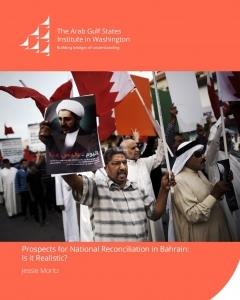
Abstract
Since the outbreak of large-scale demonstrations in early 2011, Bahrain has experienced continue domestic unrest. Within this context, King Hamad initiated a series of meetings, known as the National Dialogue, with the proclaimed intention of encouraging open discussion on governance and reform in Bahrain. The failure of state-led dialogue to deliver social peace reflects a broader polarization in Bahraini society, evident in sectarian divisions between and within opposition and loyalist groups.
These developments, combined with Bahrain’s participation in the anti-Islamic State in Iraq and the Levant (ISIL) coalition, the initiation of Saudi-led airstrikes on Houthi rebels in Yemen, and an opposition boycott of the November 2014 parliamentary elections, present a challenging environment for national reconciliation.
The lead-up to the April 17 to 19 Formula 1 Grand Prix and the April 22 scheduled resumption of Shia cleric Sheikh Ali Salman’s trial are critical moments for Bahrain. While state-led dialogue flounders, societal groups have created informal initiatives to encourage open discussion on political, economic, and security reform despite facing strong resistance from government loyalists and elements of the radical opposition. In the absence of a negotiated solution, a growing number of Bahraini youths have expressed frustration with formal opposition and turned to radical street movements